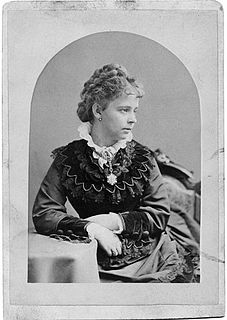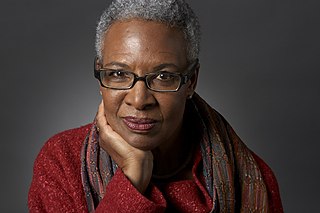A Quote by Bertrand Russell
What Galileo and Newton were to the seventeenth century, Darwin was to the nineteenth.
Related Quotes
Lest we forget, the birth of modern physics and cosmology was achieved by Galileo, Kepler and Newton breaking free not from the close confining prison of faith (all three were believing Christians, of one sort or another) but from the enormous burden of the millennial authority of Aristotelian science. The scientific revolution of the sixteenth and seventeenth centuries was not a revival of Hellenistic science but its final defeat.
Darwin's theory of evolution is the last of the great nineteenth-century mystery religions. And as we speak it is now following Freudians and Marxism into the Nether regions, and I'm quite sure that Freud, Marx and Darwin are commiserating one with the other in the dark dungeon where discarded gods gather.
Given that the nineteenth century was the century of Socialism, of Liberalism, and of Democracy, it does not necessarily follow that the twentieth century must also be a century of Socialism, Liberalism and Democracy: political doctrines pass, but humanity remains, and it may rather be expected that this will be a century of authority ... a century of Fascism. For if the nineteenth century was a century of individualism it may be expected that this will be the century of collectivism and hence the century of the State.
Up until the middle of the nineteenth century, men of science were all believers. Most of the great early English naturalists were also ministers; they were the only ones who had education and leisure for such pursuits. Darwin himself almost became a minister. God's power was always thought to be most easily and obviously revealed in the majestic works of nature.
Charles Darwin [is my personal favorite Fellow of the Royal Society]. I suppose as a physical scientist I ought to have chosen Newton. He would have won hands down in an IQ test, but if you ask who was the most attractive personality then Darwin is the one you'd wish to meet. Newton was solitary and reclusive, even vain and vindictive in his later years when he was president of the society.
Between their rise in the thirteenth century and their sudden fall in the seventeenth, when the line abruptly ended, the Medicis produced three popes, two queens, and many Florentine rulers, and they supported the work of Galileo, Michelangelo, Leonardo, and Botticelli - a veritable parade of geniuses.
Great scientific minds, from Claudius Ptolemy of the second century to Isaac Newton of the seventeenth, invested their formidable intellects in attempts to deduce the nature of the universe from the statements and philosophies contained in religious writings.... Had any of these efforts worked, science and religion today might be one and the same. But they are not.


































